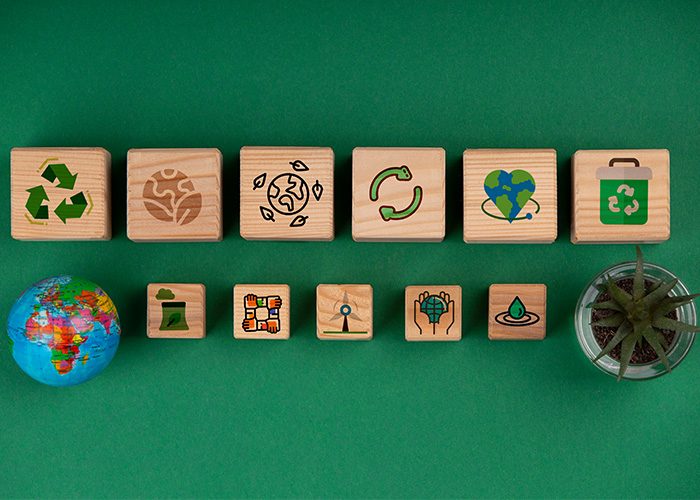About
A world In transition

A number of policy frameworks and legislative proposals are driving global change for sustainability.
The global commitment to a sustainable future – the UN’s 2030 Agenda for Sustainable Development and the EU’s subsequent framework policies and cross-cutting agendas (e.g. Green Deal, ‘Fit for 55’ package, etc.) – have brought a global transformation towards a green, digital and inclusive world into the mainstream.
Many legislative changes, efforts and investments have already been made to shape a strong common global action to protect our planet for future generations. And there is much more to come – in the near future, most of the EU’s climate and energy legislation is expected to be revised on the basis of the package of legislative proposals adopted by the Commission in July 2021, with the aim of achieving EU climate neutrality by 2050 and reducing greenhouse gas emissions by at least 55% by 2030 compared to 1990.
Such measures will have a significant impact on Europe’s economy and society:
– Many businesses, from transport to food production, will have to rethink and adapt the way they operate in order to ‘green’ their activities, services or products;
– Many structural changes will occur in the labour market – some jobs will be lost, while new jobs will be created in growing sectors;
– These labour market trends will be reflected in changing skill requirements;
– Individuals will change the way they live, behave and consume, focusing on green and sustainable products and services.
Tourism and SDG

Professionals with green skills are needed to unleash the potential of tourism to address environmental concerns.
The tourism sector accounts for 1/10th of global GDP and employment and is recognised as a strong development asset for many countries.
Its ecosystem is diverse and complex. It is made up of many different businesses, including food and drink, online information and services, travel agents and tour operators, accommodation and passenger transport. Tourism is sensitive to changes in the external environment (including the macro trends of the green, digital and fair transition, legislative changes and changes in consumer attitudes) and is flexible enough to absorb new knowledge and methods to improve the customer experience.
The sector offers a wide range of employment opportunities, from low to high skilled jobs, and is the ‘first job’ provider for many young people and disadvantaged groups. It is expected that employment opportunities will grow based on the adoption of green and digital practices across the sector.
It is recognized that the tourism has the potential to contribute directly or indirectly to sustainable development in a number of areas, including cultural heritage, environmental conservation and regeneration, rural development, diversity and inclusion.
Growing expectations of this potential, the sector’s dynamic interaction with other industries, its impact on consumer attitudes and legislative changes are putting increasing pressure on the sector to address environmental issues.
To ensure fair, safe and successful tourism services that meet demand in a sustainable way, the tourism sector needs professionals with green skills who are able to navigate the challenges and opportunities of sustainable tourism.
VET and green skills

Investments in skills are critical to building a resilient green and digital transition.
Education and training systems should support the green transition: firstly, by equipping young learners with the skills needed to navigate a greener economy and society; secondly, by enabling adults to adapt to – and ideally anticipate – the changes resulting from the transition; and finally, by fostering green mindsets.
Vocational education and training (VET) prepares people for work and equips learners (both young people and adults) with skills to help them progress in their personal and professional lives. Situated at the interface between the education and training sector and the world of work, VET is well placed to respond to – but also to enable – the green transition.
While education systems in general have not been able to respond quickly enough to the green economy trend, VET has the flexibility to do so, especially in the field of tourism. As the hospitality industry does not directly recycle and up-cycle, but rather minimises negative environmental impacts, it is essential that its employees have appropriate attitudes towards nature/transversal skills rather than strong technical expertise. This allows tourism VET to adapt quickly and effectively integrate approaches into their existing curricula to equip learners with what ESCO defines as green skills, which are particularly applicable in tourism occupations but also transferable to many other sectors.